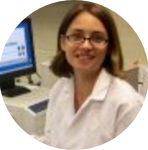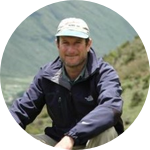About This Project
Ask the Scientists
Join The DiscussionWhat is the context of this research?
The fundamental question behind this research project is simple: how does living at high altitude (with associated stress of both low nutritional intakes and chronic hypoxia/low oxygen) influence the nutrients, immune factors and hormones in milk. As a second level question: how do these differences in milk hormones, immune factors and nutrients influence infant growth and health? To investigate this question, Geoff and EA have teamed up to look at infant feeding in a biocultural perspective - combining the expertise of both a cultural and a biological anthropologist. We will be conducting our research in the Nubri Valley of Nepal, a valley long inhabited by ethnic Tibetan migrants. Geoff has lived and researched in Nubri since 1995. We'll be using a combination of ethnographic interviews, surveys, anthropometrics (measurements of height, weight, and body fat) and sampling (milk) to understand how women socially and physiologically manage breastfeeding and how ecological pressures may influence milk composition - not only nutrients but hormones and immunoproteins in the milk.
What is the significance of this project?
This project matters because we know so little about human milk. For the vast majority of human evolutionary history and even today - breast milk is the first food an infant will receive. Milk is amazing: we know maternal physiology can buffer shortfalls in her dietary intake from influencing the energy, fat, and protein in her milk while simultaneously increasing immune factors when either she or the infant is sick. And despite this early role in milk and infant health, we understand very little about how environmental conditions such as chronic hypoxia (low oxygen availability), cold stress, and increased metabolic costs associated with these environmental exposures may influence the composition of milk - and the ways in which milk may influence growth and health among infants livings at high altitude.
What are the goals of the project?
Funds will be used to pay for field research. We will be in Nepal this summer (May & June) interviewing mothers, community leaders, and health workers in the Nubri villages (both Tibetan amchi and biomedical providers) about infant feeding. We'll be working with a team of Tibetan speaking field workers who will assist in the interviews and anthropometric collections. Almost all of the funds will be used to pay salaries and compensation. The remainder of the funds will be used to support a community based workshop on birthing and infant feeding that will be held later in the villages - addressing both concerns identified in the surveys and presenting the research findings to the community.
Budget
We need $3600 for salaries of the field staff (not us). We will hire 3 Tibetan and English speaking women either from Nubri or the offspring of Nubri Tibetans (daughters may be educated in Kathmandu) to work as field assistants and translators on the project. Staff will be paid good wages for the area ($20/day) for 60 days while working on the project. We will also cover their living expenses separately (food, lodging, etc) while they are away from home - these funds we will personally cover. We will be collecting information on maternal health and concerns about child feeding and health. These data will be used in the development of a community based workshop for all women in the Nubri Valley on safe birthing and feeding practices. We are also requesting $1000 for the workshop, including purchasing supplies to provide each participant (we anticipate 80-100 women) with an individual birthing kit and oral rehydration packets, as well as training on safe birthing practices, safe feeding practices, and how to treat infant dehydration. Finally, we need $400 to compensate the 100 mothers for their time, participation, and patience during the project. The grand total we still need: $5000.
Meet the Team
Affiliates
Affiliates
Team Bio
I am a second year assistant professor of Anthropology at Washington University in St. Louis. I have a PhD in anthropology/human biology and a Masters in Public Health from Northwestern University. I study human milk composition in a comparative framework - specifically I am interested in how ecological pressures may influence milk composition, maternal reproductive strategies (and stressors) and child growth and health. Milk is largely understudied - while the health benefits of breastfeeding on preventing neonatal infection are well established and there is growing evidence to suggest that the benefits of breastfeeding persist into adulthood, much less is known about human milk itself. I'm specifically interested in understanding how mothers in unusual and extreme environments - such as mothers living at high altitude manage their reproductive careers and if there are environmental influences on milk composition.Dr. Elizabeth (E A) Quinn
I am a second year assistant professor of Anthropology at Washington University in St. Louis. I have a PhD in anthropology/human biology and a Masters in Public Health from Northwestern University. I study human milk composition in a comparative framework - specifically I am interested in how ecological pressures may influence milk composition, maternal reproductive strategies (and stressors) and child growth and health. Milk is largely understudied - while the health benefits of breastfeeding on preventing neonatal infection are well established and there is growing evidence to suggest that the benefits of breastfeeding persist into adulthood, much less is known about human milk itself. I'm specifically interested in understanding how mothers in unusual and extreme environments - such as mothers living at high altitude manage their reproductive careers and if there are environmental influences on milk composition.
Dr. Geoff Childs
My research integrates anthropology with demography, and quantitative with qualitative methods. I use demography to discern what is happening with a population, and ethnography to gain insights on what drives demographic trends and how these impact individuals and communities. Recent research projects include Genes and the Fertility of Tibetan Women at High Altitude in Nepal with Cynthia Beall and Sienna Craig, and Economic Development and Intergenerational Relations in the Tibet Autonomous Region of China with Melvyn Goldstein and Puchung Wangdui. I also work intensively with Nepal SEEDS, a non-profit organization that works with communities to improve health, education, and the environment.
Project Backers
- 30Backers
- 41%Funded
- $2,005Total Donations
- $62.66Average Donation

